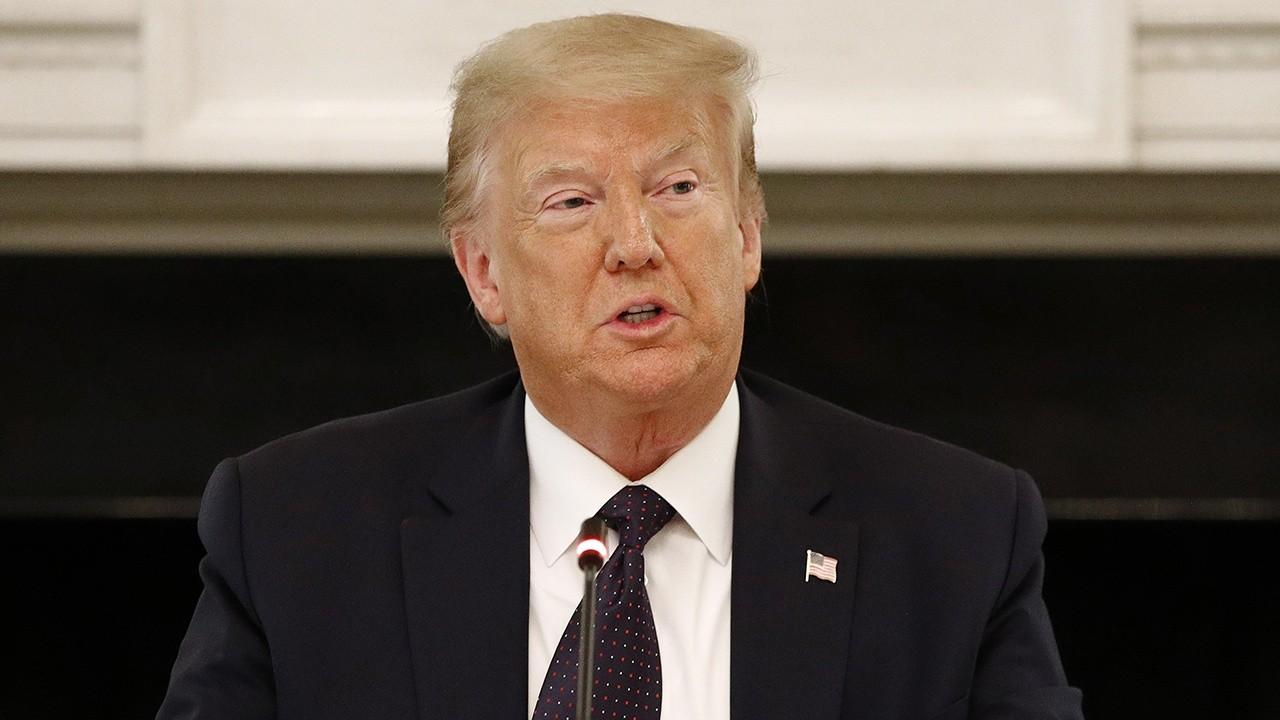US stock futures slip on US-China tensions
Futures tied to the S&P 500 ticked down
U.S. stock futures pared their declines Friday after the latest employment report showed more jobs were added than expected last month but the pace of the recovery has lost momentum.
Employers added 1.8 million jobs in July and the unemployment rate fell to 10.2%, according to the Labor Department. Economists surveyed by The Wall Street Journal had projected that payrolls grew by 1.5 million and that the unemployment rate dropped to 10.6% from 11.1% in June.
GET FOX BUSINESS ON THE GO BY CLICKING HERE
Futures tied to the S&P 500 ticked down 0.2% and had been down about 0.4% ahead of the report amid building tensions between Washington and Beijing. The gauge is on course to close the week up about 2%.
Overseas, the pan-continental Stoxx Europe 600 wavered between small gains and losses. In Asia, major markets fell. The Shanghai Composite dropped almost 1%, while Hong Kong’s Hang Seng Index fell nearly 1.6% and Japan’s Nikkei 225 index dropped 0.4%.
President Trump signed executive orders Thursday night that would bar people in the U.S. or subject to U.S. jurisdiction from transactions with the China-based owners of WeChat and TikTok, effective 45 days from Thursday. It also essentially imposes a 45-day deadline for an American company to purchase TikTok’s U.S. operations. The orders are likely to be viewed in China as an attempt to stifle the nation’s technology sector.
TRUMP SIGNS EXECUTIVE ORDER BANNING TIKTOK IN 45 DAYS
The orders come as relations deteriorate between the two countries, prompting speculation that trade among the world’s two largest economies could take a hit.
“China is just about the only bipartisan issue in Washington at the moment,” said James Athey, senior investment manager at Aberdeen Standard Investments. “The framework of a Cold War, decoupling and a bi-polar world is the right one to think about. It won’t be possible to straddle both China’s and the U.S.’s agenda.”
Shares of Tencent Holdings plunged as much as 10% on Friday in Hong Kong, hours after Mr. Trump signed the order targeting its WeChat app. Analysts who follow Tencent were scrambling Friday to figure out how much of the company’s business could be affected.
In another sign of the deepening rift, Chinese companies with shares traded on U.S. stock exchanges would be forced to give up their listings unless they comply with U.S. audit requirements under a plan recommended Thursday by the Trump administration.
TRUMP ENCOURAGED TO DELIST CHINESE COMPANIES THAT DON’T COMPLY WITH US ACCOUNTING STANDARDS
Concerns over delays to the next tranche of fiscal stimulus in the U.S. are also weighing on markets, investors said. Talks between White House officials and Democratic leaders on a new coronavirus-aid package ended late Thursday without a breakthrough as both sides edged closer to the Trump administration’s Friday deadline for reaching a deal or leaving the bargaining table.
The ICE Dollar Index, which tracks the greenback against a basket of other major currencies, climbed 0.4%.
“Risk sentiment has worsened generally this week, supporting the dollar,” said Lee Hardman, currency analyst at MUFG Bank. “The deadlock over a fiscal deal, the rising tension with Beijing: people think a fiscal deal will be done but that’s taking longer than hoped.”
Shares of Uber Technologies fell 2.5% in off-hours trading. The company posted another big loss after market close Thursday, with little sign of recovery in its core ride-hailing business as the pandemic drags on.
CLICK HERE TO READ MORE ON FOX BUSINESS
Overseas, the Turkish lira rose 0.7% against the dollar after hitting its weakest ever closing level Thursday. Officials from the central bank and the Turkish banking watchdog held an hourslong meeting with top executives from the country’s main banks late Thursday evening to discuss recent market developments.
“The situation in Turkey is getting worse and may feed negative spillovers,” Mr. Hardman said. “There’s potential there that could push the dollar higher against the euro. The euro’s more exposed to a negative shock in Turkey, as we saw in 2018.”
In commodities, Brent crude, the international oil benchmark, slid 1.1% to $44.59 a barrel.
The yield on the benchmark 10-year U.S. Treasury ticked down to 0.531%, from 0.535% Thursday.
Write to Anna Isaac at anna.isaac@wsj.com




















